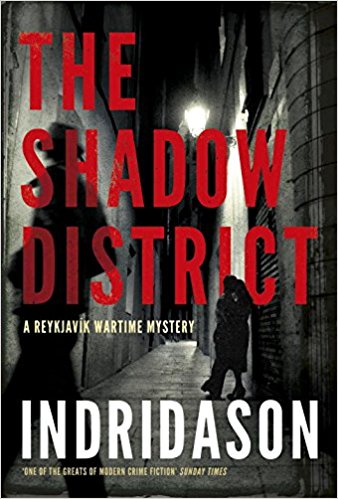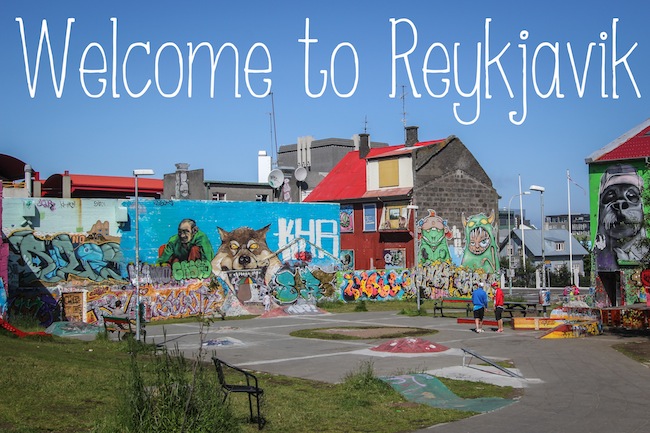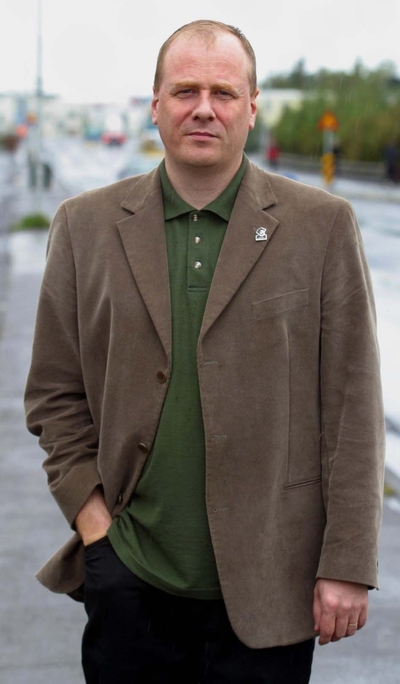A krimi set in wartime Reykjavik Iceland in 1944. The island is awash with soldiers and sailors of the Allied forces: Brits, Canadians, French, and mostly Americans. Harbours are dredged, piers built, fuel tanks dug into hillsides, pipelines laid, barracks built everywhere, landing fields levelled, hangers erected, roads paved, concrete bunkers made, ammunition dumps created, and on and on, from 1940. There has been more money spent on the island in those five years than in the previous five hundred years.

With so much money comes loose morals, it would seem, despite the language barriers. While Icelandic men are not off at the war, they are off on construction jobs all over the island, leaving wives, sisters, cousins, and daughters to their own (de)vices.
The setting and the set-up are good. On the plus side is some detail about the impact of this intrusion on Iceland, and not just the sex, but also on nationalism, though that is merely mentioned and not in any way developed. The weather is there, too, but it does not figure in the story, as it did in ‘Trapped.’ There is also a little more about Iceland legends, the hidden people, but again it is a sidebar that is not cemented into the plot.

The execution is not equal to the set-up. First, the story is split between then in 1944 and now in 2000, say. This is a technique I cannot abide because it makes the reader responsible for integration. Second much of both stories, the then and the now, is padding, e.g,
‘I walked up the the three plank steps to the door. I took off my left glove and knocked on the door, and waited, while I put the glove back on. I heard faint sounds insider but the door did not open.
I took my glove off again and knocked on the door again. I put the glove on and waited. And waited.
The door opened. I introduced myself and asked to come in for a word. She said, no. I asked gain very politely. she said no and turned away. I asked once more for a word inside. She said alright.’
Snappy, uh? He then asks her what she saw. She says she saw nothing. He asks her three times and three times she says she saw nothing. Bold, he asks a fourth time, again no result. He leaves, descending the plank steps.
That took about five pages for nothing. He then repeats most of this verbatim to his partner over the next two pages.
While this book is slow, it is not detailed, but rather superficial. Two examples suffice. (1) The Icelandic nationalism is mentioned more than once but never articulated. (2) While there are many soldiers around there is never anything about their role in the war effort or how Icelanders feel about being occupied. Is this war their war? They are, after all, eddas or not, Danes by blood and the German heel is on Denmark, yet that is never even referred to as an issue in the story.
The text, perhaps thanks to the translator, is replete with banalities. If there was a clichéd way to say something, that was the way it was said.
 Arnaldur Indridason
Arnaldur Indridason
This is one industrious writer who has three series, the one that includes this title is Reykjavik during World War II, including ‘Silence of the Grave’ (2007), which was adequate, and another series that follows the investigators of Inspector Erlendur, e.g., ‘Jar City’ (2007) which I liked a lot for its meticulous attention to detail, especially in thinking things through. Erlendur as I recall does a lot of thinking. In contrast is the author’s third series ‘Reykjavik Thrillers.’ On the strength of Erlendur I read his ‘Operation Napoleon’ (2012) and regretted it and did not bother to finish it. The list of his titles on Amazon translated into English is long,
While my recollection of Erlendur is strong enough for me to try another, from now on I will pass on the other two serieses.
Skip to content
